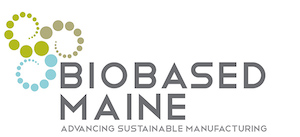Press Coverage of Maine Bioplastics Seminar 2012
The Sustainable Bioplastics Council of Maine’s recent seminar “From Plants to Products: Seizing Maine’s Market Share in the Bio-Based Economy” was previewed by the Bangor Daily News. BDN business reporter Matt Wickenheiser wrote:
“OK , with all due respect to Mrs. Robinson, here’s one word for the future: Bioplastics. Some folks in Maine believe that concept – using green materials from plants, trees, etc. to make plastic fibers – can hold promise for not only the future of the state, but for its present.”
And here’s our own press release about the event.
NEWS FROM THE SUSTAINABLE BIOPLASTICS COUNCIL OF MAINE
Plant to Products: April 11 conference to highlight successes, opportunities for bio-based products
FOR IMMEDIATE RELEASE – April 3, 2012
In the town of Boothbay, Maine, a cutting edge manufacturing facility is turning plastic fibers made from plants into medical supplies. In Old Town, a struggling pulp mill has new life thanks to a “biorefinery” that converts wood chips into sugars, which are nature’s chemical building blocks. And in Waterville, a company produces plastic mulch that is 100 percent compostable in the farm field.
Green chemistry and bio-based manufacturing aren’t just buzzwords in Maine anymore. They’re a very real part of the economy, with plenty of room to grow. Firms such as Biovation, Old Town Fuel and Fiber, and Cerealus employ hundreds of Mainers, and are leading the way to a future that is less dependent on oil, and more sustainable for the generations to come.
The leaders of these companies and others, along with researchers, policymakers, and economic developers will gather in Boothbay on Wednesday, April 11 for a conference titled “From Plants to Products: Seizing Maine’s Market Share in the Bio-Based Economy.”
The conference, organized by the Sustainable Bioplastics Council of Maine, will be held at the manufacturing facility of Biovation. Participants will discuss success stories and lessons learned from the production and sales of bio-based products, as well as market opportunities and the tremendous potential for Maine companies to advance in this field.
“The shift away from oil, toward bio-based chemicals and materials, represents the future of our global economy,” said Michael Belliveau, Vice President of the Council and Executive Director of the Environmental Health Strategy Center. Belliveau noted that corporate sustainability goals, growing demand from consumers for safer greener products, and the volatile price of oil continue to drive investment in bio-based manufacturing.
“Maine is really well positioned to make the most of these driving forces,” Belliveau said. “We have the natural resources, the forests and farmland. We have the labor force and the manufacturing infrastructure, too much of which is idle. And we also have the ‘Made in Maine’ brand, which tells consumers that these are products they can trust.”
U.S. Representative Chellie Pingree, D-Maine, will discuss federal funding opportunities for bio-based products. Pingree is a member of the House Committee on Agriculture, which oversees the USDA programs that promote use and production of bio-based products.
Andrew Soare, an analyst with Lux Research in New York City, will give the keynote address. It will be the first time that an expert on the bio-based materials market has visited Maine to meet with entrepreneurs and to provide a comprehensive overview of market opportunities.
“It is an honor for us to host this event and to provide a venue to discuss and confer about our challenges, to celebrate our successes and to see how collaboratively we can roadmap our biopolymer cluster efforts together,” said Kerem Durdag, CEO of Biovation LLC, a Maine manufacturing company that makes food packaging and wound care products using bio-based plastics.
For a full agenda, list of speakers, and to register for the conference, go to www.mainebioplastics.org. Tours of the Biovation manufacturing facility will be available for journalists.
###
The Sustainable Bioplastics Council of Maine is a trade association seeking to create jobs and business opportunities to meet the rapidly growing market demand for bio-based plastics. Based on renewable resources rather than petroleum, bioplastics can meet the consumer need for a more environmentally sustainable material at comparable cost and performance.
